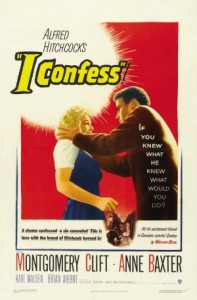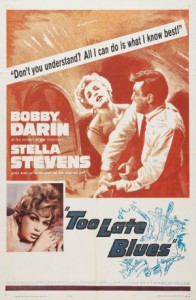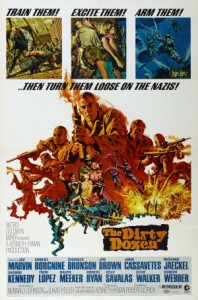I Confess [1953, Alfred Hitchcock] (6.2)
Would fit nicely into an essay on Hitchcock’s fluidity of guilt, not to mention his Catholic upbringing – this being the most overt confrontation with it. It’s almost certainly his most literally spiritual film, but it slides toward the back of the pack in terms of visceral spirituality. Predictable and questionably directed, it nonetheless presents a compelling moral dilemma that gets surprisingly tense in its latter stages. I was hoping for the ‘The End’ to appear as Father Logan exited the courthouse after hearing his verdict, but was instead provided a citation for Kinski’s Aguirre performance.
Too Late Blues [1961, John Cassavetes] (6.0)
A film about spontaneity as much as it is about pride, chauvinism, and selling out, which is perhaps obvious in reference to a Cassavetes film, but I think this is both the first film of his to really incorporate it as an essential element (at least, I didn’t think Shadows was really concerned with it), as well as the most ambivalent toward it. Every key moment for protagonist John ‘Ghost’ Wakefield happens at a moment that seems to spring from nowhere, signalling actions that go against his believed-established morals and ideals – his treatment of Jess during the bar brawl carrying the most consequences. His commitment to jazz and making more populist career moves is the conflict that ultimately wipes him out, prompting the loss of his girl, his friends, and his music. Much better for me in retrospect, so I’ll probably like it much more next time.
Mikey and Nicky [1976, Elaine May] (5.9)
The shot-reverse-shot patterns really irritated me, and I couldn’t shake the feeling that I was watching a hack doing her best Cassavetes impression, going so far as to cover it up by casting the man himself for the lead. I don’t like to put too much stock in gendered voices, but this film was trying really hard to not come off as feminine. The climax is brutal and unforgettable, but the evolution up to that moment – an intimate relationship between two males – needed someone who’d lived such experiences to tell them with any amount of breadth.
The Dirty Dozen [1967, Robert Aldrich] (3.9)
I was afraid that a film about twelve prisoners deployed on a confidential and urgent mission would play out like this. Aside from the absurdity of the premise, you’ve got your token nutcase, screwball, and wise one, plus some fillers since it’s too difficult to make that many memorable characters without trying too hard. Ends in a loud, vulgar finale that holds up worse now than it probably did a few years ago now that Inglourious Basterds showed essentially the same thing, but with more grandeur, catharsis, and fun.




